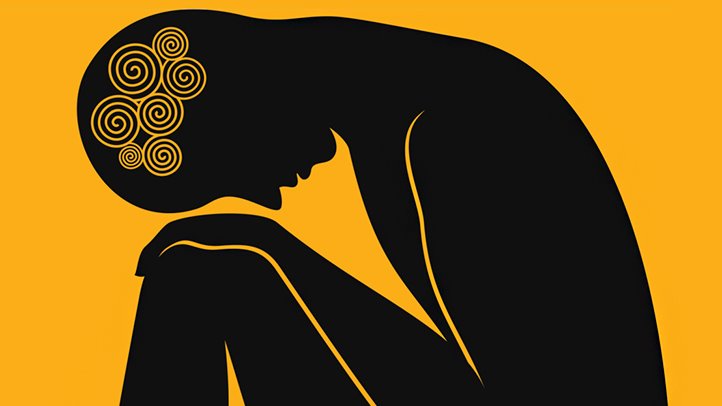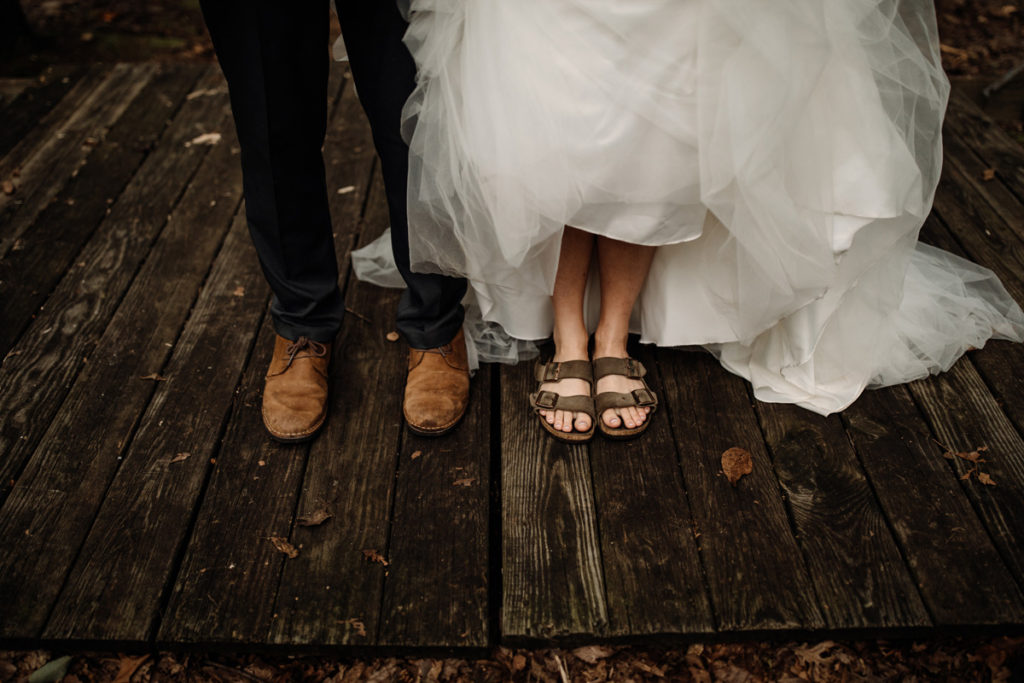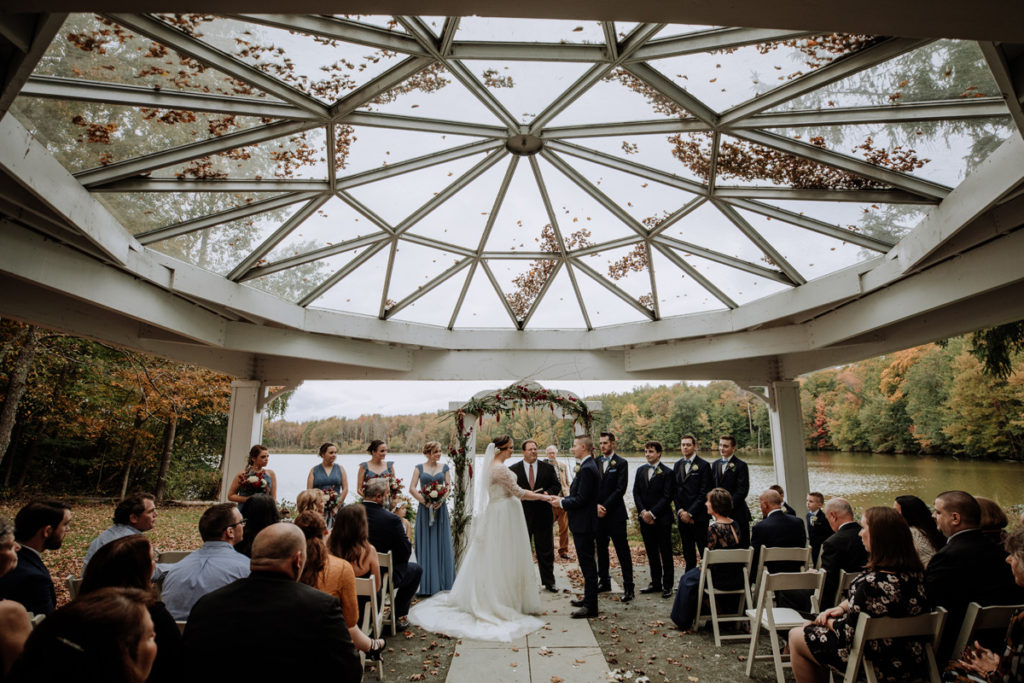Last Updated: February 14th, 2020
Note: None of the points made here should be viewed as medical advice. In sharing my experiences and thoughts, I am only sharing my experiences and thoughts. If you feel you have anxiety or another medical condition that would benefit from treatment, or you’re unsure of what you are feeling, consult a doctor. In addition, throughout this article, I have linked to various resources that will be useful to you as they are more authoritative voices on the matter.
Anxiety is an incredibly common thing to feel – whether you’re photographing weddings or not.
One thing most wedding photographers would agree with, though, is that the anxiety felt tends to be intense. It makes sense, because the work they do is so critically important. It is one huge day in the life of two people (and their family/friends), and photography ends up being the one thing they pay for so they can better remember it – forever.
While being a wedding photographer is not as crazy in the anxiety department as working as a police officer or standing at the front line of a war zone, it’s pressures are unique.
One reason why I feel this way is because so many people are lured to photography because they have introverted spirits. They feel doing a job where they stand behind a camera can allow them to get away from the intensity of working in an environment where people constantly are vying for their attention.
In this article, I am going to talk to you about anxiety (both the good and bad it brings), how wedding photography can cause anxiety to a photographer, and how you can cope with these feelings.
First – I want to talk about my anxiety
 To provide you a useful article about wedding photographer anxiety, I need to set the stage by talking about my own anxieties. This is done in the name of transparency, and in hopefully enhancing the things I write about here.
To provide you a useful article about wedding photographer anxiety, I need to set the stage by talking about my own anxieties. This is done in the name of transparency, and in hopefully enhancing the things I write about here.
It is also likely that if you have stumbled upon this post and will continue reading, being able to relate to my experiences will help you shape how you view anxiety, too.
I have a long history with anxiety.
It came before I ever had the stirring that I’d turn into a photographer.
And it’s deep rooted.
I’m sure there are an infinite number of reasons why a person becomes anxious, and some I don’t even consider within myself. But, when I think about why I feel anxiety like I do, and when I started feeling like this – my core thoughts go back to early on in life after having experienced traumas I won’t talk about here.
As life goes on, things compound. Good and bad experiences all end up processed by our minds and bodies, and for some people, the end result is this consistent state of anxiety.
In my own little world, small things that shouldn’t be all that infuriating could trigger “anxiety trips” that would take me down memory lane. The honking of a car horn, the slamming of a door, being pressed for information by a boss…all relatively mundane things would wind up making me feel serious anxiety not just because I experienced the actual thing, but because those things served as triggers to experience and re-experience worse anxieties I’ve felt in life.
Managing my anxiety has been a long road and required experimentation with several coping mechanisms. Today, I am much better off with managing these feelings than I once was, but it’s the result of going through many different treatment routes including prescription medication, counseling, exercising more, eating healthier, and so on.
As I’ve experienced anxiety in this way for well over a decade, it turns out that the anxiety I feel before shooting a wedding is more dulled (for a lack of better words). It’s still powerful, but I’d say it’s pretty much normal – maybe even healthy.
So…what is anxiety anyways?
Anxiety is your body’s natural reaction to stress.
What one person finds stressful, another person might not be stressed out by at all.
Due to this, anxiety is tough to lock down as there are so many things that can cause it.
The level of anxiety you feel, as well, plays a significant role in your experience of it.
How Can Anxiety Be Bad?

When the anxiety you are experiencing is negatively impacting your life – it would be medically classified as some type of anxiety disorder.
On one end, there are people who don’t really feel much anxiety at all – with anything. This can actually be life dangering. It’s the type of experience some daredevils have, and why they are so prone to needing to push themselves to the limit (like jumping out of an airplane) just to feel some sort of rush.
On the other side of things, anxiety can be really debilitating for some. Panic attacks are often uncontrollable waves of anxiety that are triggered by simple, sometimes even dumb, things. I used to experience this a lot. I remember one day while walking across my college campus when I had a panic attack. There wasn’t a big event that day that caused me to feel this way, it just happened.
How Can Anxiety Be Good?
 Somewhere in the middle of these two extreme experiences of anxiety is something natural, healthy, and even beneficial.
Somewhere in the middle of these two extreme experiences of anxiety is something natural, healthy, and even beneficial.
At it’s most basic, anxiety is a way our mind and body communicate when something is stressful. We feel it sometimes as nervousness in our stomach, racing thoughts, sweaty palms…I’m sure you can think of ways you feel it, too. In some ways, this whole experience is really a way to tell you’re alive and functioning normally. It’s like a “check” to see that the lights are on upstairs.
The good kind of anxiety can be used as fuel to make better decisions and do things you might not have wanted to do before.
I know I get anxious even when I go out to a new restaurant. Maybe I’m dumb, but I get nervous about parking in areas I’m unfamiliar with – especially in cities. From that description alone, I’m anxious before I even get to the new restaurant. Much less going inside, sitting down, and having to find something to eat when it would have probably been easier to just go eat at Applebee’s for the 50th time.
When anxiety is doing it’s job well, it tells me one of two big things:
- The situation I’m in isn’t good, and I should do what I can to get out of it
- The situation I’m in is just new, and I should get out of my comfort zone
If I’m in a situation that isn’t good, like if someone had a gun to my head, it would make total sense for me to feel anxious. I’d hope you respond the same way. This sort of situation would end up triggering the fight-or-flight mechanism every human being comes equipped with – and anxiety is in a powerful way the fuel for this.
If the situation is just new to me, getting out of my comfort zone is essential. It’s the only way to live life as far as I’m concerned. Absolutely, I feel anxious. But the key is to not let that anxiety keep me from doing the things I want to do, or need to do, just because I’m not totally familiar with it.
Related reading: Anxiety vs. Anxiety Disorders: The difference between regular feelings of anxiety and a true anxiety disorder
For some perspective, at my day job, I had a lot of anxiety before I asked for a raise, while I asked my boss for one, and after it was all done. It’s something I never did before. I got the raise in the end. If I had let my anxiety have total control over my ability to ask, I’d probably have never received the promotion and pay increase.
How Can Shooting a Wedding Make a Photographer Anxious?
 My experience with anxiety as a wedding photographer pretty much begins the moment a new client books. While I get excited to see the deposit payment roll in, and a signed contract in front of my face – I know that I’m not being paid to just show up as a guest.
My experience with anxiety as a wedding photographer pretty much begins the moment a new client books. While I get excited to see the deposit payment roll in, and a signed contract in front of my face – I know that I’m not being paid to just show up as a guest.
Some of the things related to photographing a wedding day that make me anxious include:
- Getting lost when traveling to a new venue
- Being late
- My car breaking down
- Losing track of time during the day (especially true when I need to be at different locations for prep, ceremony, and reception)
- Fear of my gear not working
- Forgetting some essential equipment
- Nervousness that the light won’t be in my favor
- Concern that someone at the wedding (bridal party member, guests, family, venue staff, etc.) will treat me poorly
- Being in a confined space with a lot of people (such as when shooting getting ready photos in a hotel room)
- Being exposed (and associated with) unwanted behavior
- Working with other wedding vendors who make things difficult by not acting professionally
- Not feeling like I can be fully “present” for my client
- Having to organize the sparkler exit at the end of the night
- Needing to get my settings right for some tricky shots
- Being misunderstood or saying something stupid
I think you get the idea. There is definitely more that could be added, too.
If there is anything that makes you feel anxious when photographing a wedding day, feel free to share in the comments!
How Can You Cope With Anxiety on the Wedding Day?
 For all my wedding day photo anxieties, I tend to feel them the worst the day before and in the time leading up to my arrival at the venue. I’ve noticed that once I say “hello” to the bride & groom, most of my anxieties melt away.
For all my wedding day photo anxieties, I tend to feel them the worst the day before and in the time leading up to my arrival at the venue. I’ve noticed that once I say “hello” to the bride & groom, most of my anxieties melt away.
The reason for this is because I operate very professionally.
As a wedding photographer, I am doing a job that requires my utmost attention and dedication. In this way, it’s really like any job out there.
When my anxiety feels more intense than usual, or pops up as the day goes on, some of the tips, tricks, and techniques I apply to help me manage it better include:
1). Accept that things aren’t so bad
Learning to cope with my anxieties was a lot like going through the 7 Stages of Grief. I’ve finally made it to the “Acceptance” stage, and it makes a world of difference.
Through time, I’ve managed to just simply realize that most things aren’t as bad as they play out in my head. You’re unlikely to walk into a hotel room to greet the bride and be told “you’re a loser” immediately.
2). Be as prepared as possible
The best wedding photographers aren’t necessarily the best photographers.
Read that sentence again.
A lot of wedding photography boils down to being able to manage expectations and being able to be prepared for the things that will happen throughout the day.
One of the most tangible ways to do this is to create a wedding day photography timeline. It should be done with input from your clients as well! This will help you visualize the day and see when you need to be at certain places and do certain things throughout the day.
In the days leading up to a wedding, I also go through a fun ritual of charging all of my batteries, formatting SD cards, and making sure all of my camera gear is packed up and ready to go. Some things, like my flash stands, stay in the car as a permanent fixture.
3). Realize that wedding days are not fully controllable.
At the end of the day, all the preparation in the world still won’t control things. With a timeline in hand, you can’t magically make a hair stylist speed up prep of the bride so she can get outside for first look photos with her soon-to-be husband.
Some of my anxious feelings have subsided since really seeing this in action.
4). More experience will decrease your anxiety.
The first couple of weddings I photographed were the pinnacle of intensity. I was often nervous, and often even a little confused as to what I should be doing. I’d ask myself 50 questions as the day went on…
- Is it normal/okay for me to take pictures of random guests at cocktail hour without asking permission?
- Should I be moving people around to get a good shot, or just shoot candidly?
- Is it reasonable to have the bride & groom walk a far distance to get a great shot?
- Should I use flash in this situation or not?
These might be questions like what you think about! And it’s perfectly okay to have them.
My experience, now having shot dozens of weddings, has brought me answers.
- I can walk into a room and know exactly how I want to interact with the people there.
- I know exactly what I’m willing to do, and willing to ask others to do, to get a good shot.
- I know how to handle lighting, good or bad, and whether it makes sense to use flash in certain environments.
Experience makes things easier.
It lessens the stress of shooting a wedding day.
Honestly, it’s at this point that photographing weddings actually turns into something that can be really fun.
5). Take care of yourself
Lastly, the wedding day is all about thinking about your clients – the bride & groom – and how they are going to have one of the best and most important days of their lives together.
In order to do right by your clients, it’s important to keep yourself cared for throughout the day. I’m not meaning by storming out to get a snack right when they go to cut the cake.
In advance of the wedding, you should try to keep yourself healthy. Regular exercise, a good diet, drink plenty of water – these are all things that contribute to someone being able to have better control over their anxiety. I know they have helped me. By being more in control and taking care of yourself, it will reflect on the service you provide on the wedding day for your clients.
On the wedding day, there are a few simple things I keep in mind to make sure I can stay alert and reduce my anxieties:
- Drink plenty of water
- Bring snacks and chow down when you have time
- Take breaks (we’re talking even just a few minutes here and there)
These are nothing complicated, but very essential for a wedding photographer to do.
If you feel bad about taking some down time (like I do sometimes), use this time to assess what is going on around you.
By stepping back, you will sometimes notice things you wouldn’t have otherwise. I find this during the reception a lot, as my focus is so strictly pulled to the dance floor “where all the action is.”
By doing this, I once noticed a groom interacting in the sweetest way with his grandparents off in a corner. I grabbed my camera, got in close, and got a couple of beautiful and unplanned moments as a result.
It’s moments like these that are so captivating and memorable. And to think, it is the result of being an introverted photographer with a lot of anxieties I’ve managed to get under control with time and experience. You can absolutely do the same!
For more great reads, check out 101 Digital Photography Tips and How to Start a Wedding Photography Business.